Saying “I love you” in Japanese isn’t as simple as finding a direct translation. The nuances of expressing love in Japanese go far beyond a single phrase. This article explores the various ways to say “I love you” in Japanese, delving into their cultural context and subtle differences.
Beyond “Ai Shiteru”: Exploring Japanese Expressions of Love
While “愛してる” (ai shiteru) is often cited as the Japanese equivalent of “I love you,” it’s rarely used in everyday conversations. Its directness and profound meaning make it reserved for serious relationships and significant moments. So, how do Japanese people express affection more casually? Let’s explore some common phrases:
好きだよ (Suki da yo) and 大好きだよ (Daisuki da yo): Liking and Loving
These phrases translate to “I like you” and “I really like you,” respectively. While “suki” indicates fondness, “daisuki” expresses a deeper affection. In romantic contexts, “daisuki da yo” can convey a strong sense of love, especially when considering the Japanese tendency towards indirect communication. The addition of “yo” emphasizes the statement, making it more personal and directed towards the recipient.
Think of “daisuki” having varying degrees of intensity:
- Mild: Expressing fondness for things like food (“pizza daisuki!”).
- Moderate: Conveying enjoyment of someone’s company (“I love spending time with you”).
- Strong: Professing deep affection for a romantic partner, equivalent to “I love you.”
 alt text: Japanese Kanji for Suki meaning liking or pleasing
alt text: Japanese Kanji for Suki meaning liking or pleasing
 alt text: Japanese Kanji for Dai meaning big or large
alt text: Japanese Kanji for Dai meaning big or large
愛してる (Ai Shiteru): The Infamous “I Love You”
“Ai shiteru” carries a significant weight, representing deep and enduring love. It’s a declaration of profound emotional commitment, rarely uttered casually. Its usage often implies a long-term relationship or a pivotal moment in a romance.
 alt text: Japanese Kanji for Ai meaning Love
alt text: Japanese Kanji for Ai meaning Love
愛してます (Ai Shitemasu): Formality and Romance
This is the formal version of “ai shiteru.” While grammatically correct, using it with a romantic partner can sound insincere or even mocking due to its overly formal tone in an intimate context. It’s primarily heard in formal settings like marriage proposals or dramatic scenes in movies and TV shows.
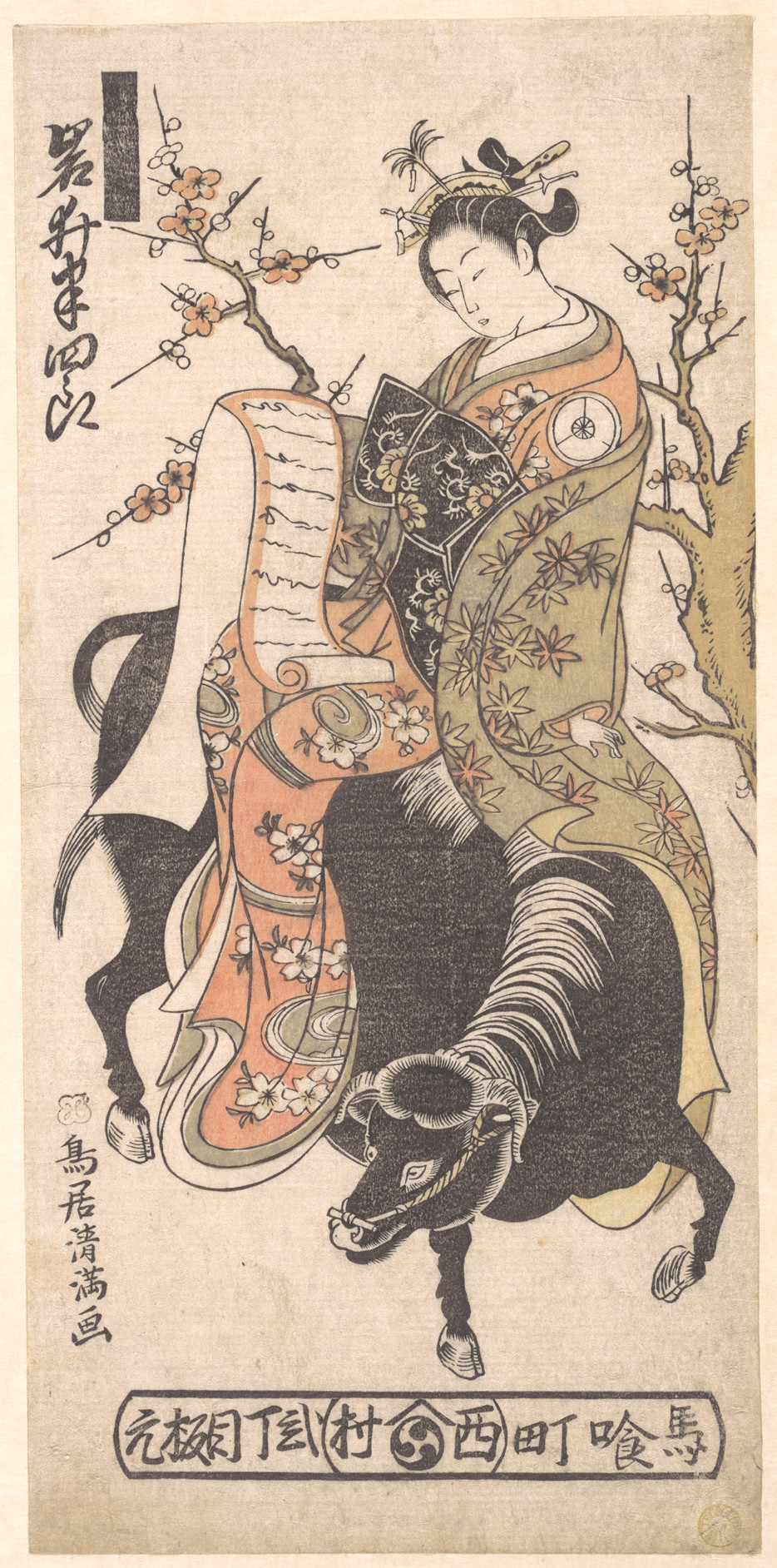 alt text: A courtesan reading a love letter from 1763 Japan
alt text: A courtesan reading a love letter from 1763 Japan
Cultural Context: Why “I Love You” Is Rare in Japan
Japanese culture often prioritizes implicit understanding over explicit verbal expression. Feelings are often conveyed through actions, gestures, and unspoken cues. This cultural context explains why even “ai shiteru” is less common than “I love you” in Western cultures. A survey revealed that Japanese men hesitate to say “ai shiteru” due to shyness, the perceived weight of the phrase, or a belief that actions speak louder than words.
 alt text: A blushing emoji representing shyness
alt text: A blushing emoji representing shyness
恋 (Koi): Infatuation, Not Love
While the kanji “恋” (koi) relates to romantic feelings, phrases like “koi shichatta” (fell in love) or “koi ni ochichatta” (fallen in love) describe the initial stages of infatuation or liking someone. They aren’t declarations of deep, lasting love and are not used in the same way as “I love you.” These phrases are often shared with friends, not the object of affection.
Expressing Love in Japanese: Actions Speak Volumes
Understanding how to say “I love you” in Japanese requires more than memorizing phrases. It involves grasping the cultural context and the subtle ways emotions are conveyed. While direct declarations of love might be less frequent, love is expressed through actions, thoughtful gestures, and the unspoken language of deep connection. Learning these nuances provides a richer understanding of Japanese culture and its approach to romance.
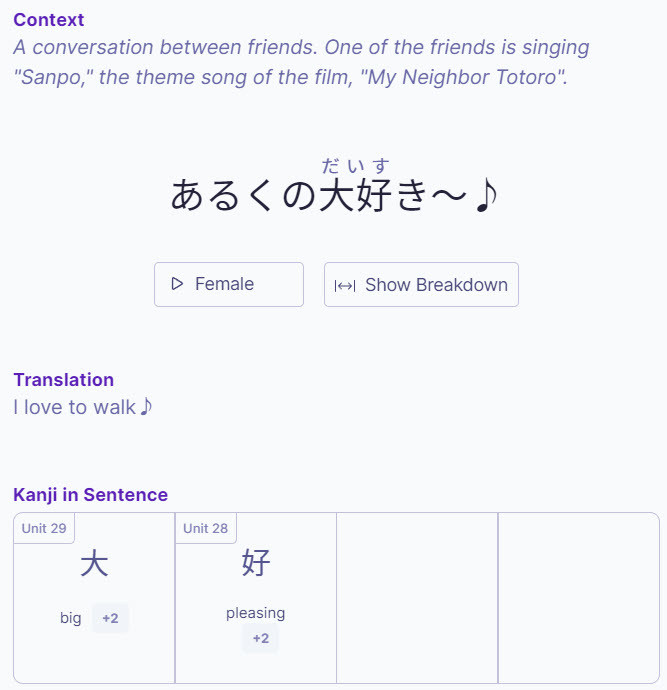 alt text: NativShark screenshot showing Japanese vocabulary related to love
alt text: NativShark screenshot showing Japanese vocabulary related to love
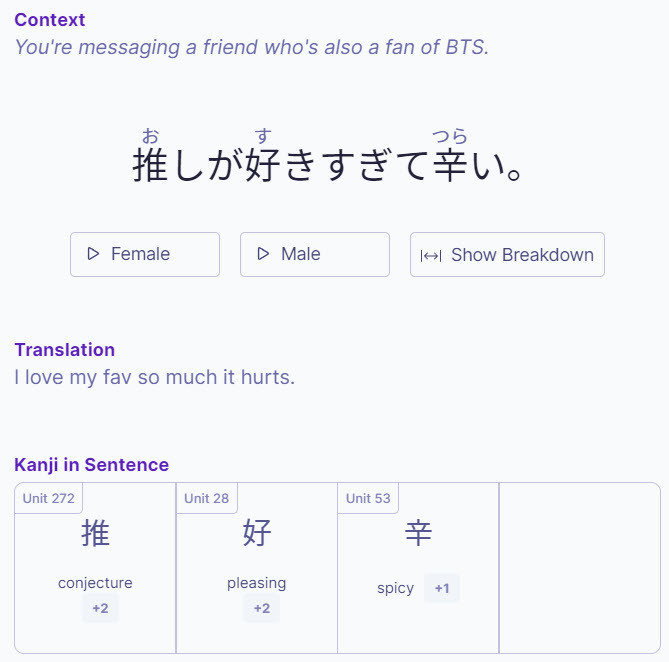 alt text: NativShark screenshot showing a conversation about falling in love
alt text: NativShark screenshot showing a conversation about falling in love
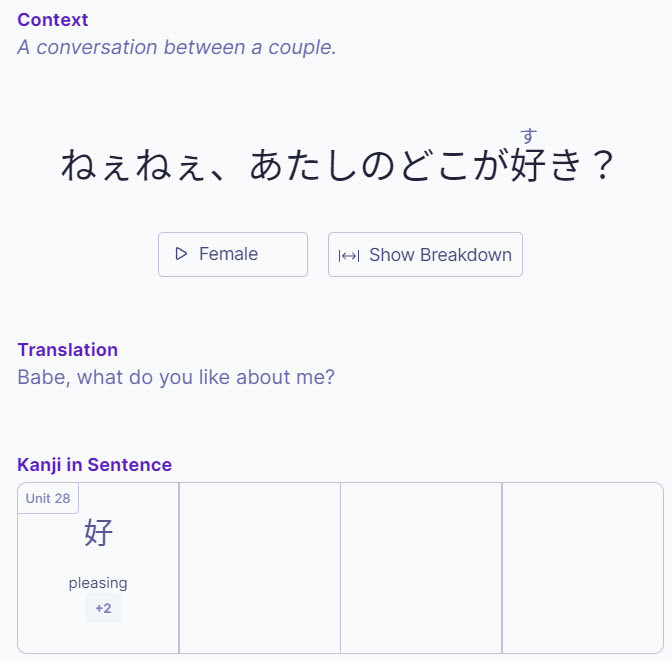 alt text: NativShark screenshot with a sentence about liking someone
alt text: NativShark screenshot with a sentence about liking someone
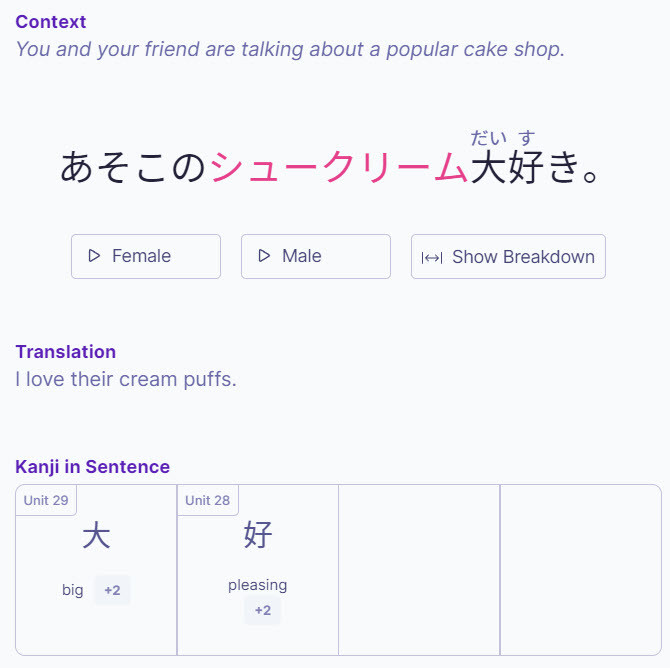 alt text: NativShark screenshot with a sentence about loving someone
alt text: NativShark screenshot with a sentence about loving someone
